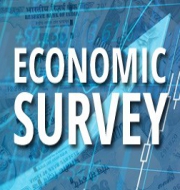Economic Survey backs Universal Basic Income
The Economic Survey 2016-17 tabled in Parliament has advocated for the concept of Universal Basic Income (UBI) as an alternative to the various social welfare schemes in an effort to reduce poverty.
It suggests that a more efficient way to help the poor will be to provide them resources directly, through a UBI. It will be an efficient substitute for a plethora of existing welfare schemes and subsidies.
What is Universal Basic Income (UBI)?
A basic income is a form of social security in which all citizens of a country regularly receive an unconditional sum of money, either from a government in addition to any income received from elsewhere. It is based on the principles of universality and unconditionality. However, it forfeits other government aided benefits. Recently, government of Finland announced the introduction of a trial for UBI involving 2,000 unemployed people. In June 2016, Swiss voters in referendum had overwhelmingly rejected proposal to introduce basic income for all.
Survey’s justification for introduction of UBI
- Promoting social justice, reducing poverty, unconditional cash transfer that lets the beneficiary decide how she uses the money, employment generation by promoting labour flexibility.
- It will bring in administrative efficiency as a direct cash transfer through JAM (Jan Dhan-Aadhar-Mobile) platform.
- It will be more efficient as compared to the “existing welfare schemes which are riddled with misallocation, leakages and exclusion of the poor.
- It can help to achieve considerable gains in terms of bureaucratic costs and time by replacing many of these with a UBI.
Month: Current Affairs - February, 2017


